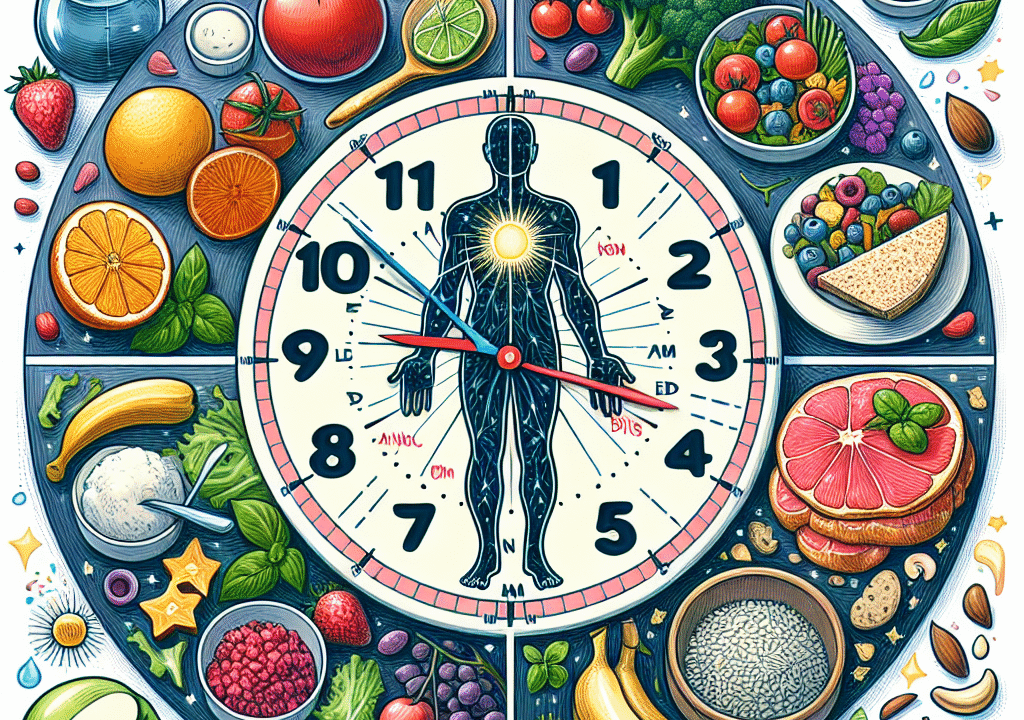
The Blue Zone Blueprint: Reverse-Engineering Longevity Through Mediterranean Eating
In a world dominated by fast food and hurried lives, the key to a longer, healthier life may lie in the traditional lifestyles and eating habits of certain global communities known as the “Blue Zones.” From the serene hills of Ikaria, Greece, to the sunny shores of Sardinia, Italy, these regions share common traits that promote extended well-being — most notably, a Mediterranean-style diet rooted in whole, plant-focused foods.
This guide offers a powerful starting point to adopt the nourishing lifestyle habits found in Blue Zones, from your kitchen to your mindset, helping you enhance energy, well-being, and healthspan — not just lifespan.
What Are the Blue Zones?
The term “Blue Zones” was coined by longevity researcher and author Dan Buettner. It refers to five regions across the globe where people consistently live longer and experience lower rates of chronic disease. These regions include:
– Ikaria, Greece
– Sardinia, Italy
– Okinawa, Japan
– Nicoya Peninsula, Costa Rica
– Loma Linda, California (Seventh-day Adventist community)
Although geographically diverse, these populations share remarkable similarities: strong social ties, daily physical activity, and predominantly plant-based diets that emphasize minimally processed, locally sourced foods.
For example, studies indicate that residents of Ikaria are nearly two and a half times more likely to reach age 90 compared to the average American.
The Mediterranean Diet: A Lifestyle Beyond Olive Oil and Red Wine
While olive oil and the occasional glass of red wine are staples, the true Mediterranean diet is much broader. It emphasizes everyday, seasonal ingredients and a lifestyle centered on simplicity, balance, and community.
According to the Harvard T.H. Chan School of Public Health, the Mediterranean diet is consistently linked to reduced risks of heart disease, metabolic syndrome, certain cancers, type 2 diabetes, and depression.
Core Components of the Mediterranean Eating Style
Here’s what sets the Mediterranean diet apart:
– Plant-Based Foundation: Meals are centered around vegetables, fruits, whole grains like barley and farro, legumes like chickpeas and lentils, herbs, nuts, and seeds. These ingredients are packed with fiber, antioxidants, and essential vitamins such as folate and magnesium.
– Healthy Fats: Extra virgin olive oil provides heart-healthy monounsaturated fats and anti-inflammatory compounds. When used to replace saturated fats like butter, olive oil supports cardiovascular health.
– Lean Proteins: Seafood such as sardines, anchovies, and mackerel offers omega-3 fatty acids essential for brain and heart health. Legumes also serve as a satisfying plant-based protein source. Red and processed meats are used sparingly.
– Fermented Foods: Yogurt and aged cheeses such as feta promote a healthy gut by supporting beneficial bacteria.
– Naturally Occurring Sugars: Instead of processed sweets, fruits like grapes, oranges, and figs—occasionally topped with raw honey—serve as satisfying, real-food treats.
– Mindful, Social Eating: Meals are a social experience, often shared with loved ones at a leisurely pace. Blue Zone residents typically eat earlier in the day and enjoy their food without distractions.
How the Mediterranean Diet Supports Longevity
Let’s explore how this time-tested dietary pattern supports health and long life.
1. Fights Inflammation and Prevents Chronic Disease
Chronic inflammation contributes to conditions like heart disease, Alzheimer’s, and type 2 diabetes. The Mediterranean diet is rich in anti-inflammatory elements, including vitamin C, polyphenols, omega-3s, and resveratrol.
Research published in the journal Nutrients (2018) found that those adhering to this diet experienced a 25% reduction in markers of systemic inflammation.
2. Protects Heart Health With Healthy Fats
This diet is naturally high in fiber and unsaturated fats and low in saturated fats. These qualities help stabilize cholesterol and blood pressure levels.
The American Heart Association reports that individuals who follow a Mediterranean eating plan can reduce their risk of heart disease by up to 30%.
3. Promotes Cognitive Health and Reduces Risk of Dementia
The diet’s abundance of antioxidants, healthy fats, and nutrient-rich foods has been shown to promote brain health and reduce age-related cognitive decline.
The MIND diet, a variation of the Mediterranean plan, has demonstrated up to a 53% reduction in the risk of developing Alzheimer’s disease, according to a 2015 study published in Alzheimer’s & Dementia.
4. Encourages a Healthy Weight and Metabolism
Nutrient-dense foods naturally promote portion control and satiety, supporting healthy body weight and blood sugar regulation.
A 2020 review published in The Lancet Diabetes & Endocrinology found that the Mediterranean diet outperformed low-fat diets in sustaining long-term weight loss and improving insulin sensitivity.
Bring Blue Zone Eating Into Your Life
You don’t need to relocate to a Blue Zone to experience the benefits. Here’s how to begin incorporating these principles into your own life:
1. Rebuild Your Pantry With Whole, Nutritious Staples
Stock up on whole grains like oats, quinoa, and farro; canned lentils and beans; olive oil; nuts; garlic; herbs; and canned oily fish like sardines. Remove ultra-processed snacks and sugary beverages from your kitchen.
2. Prioritize Cooking and Eating With Others
In Blue Zones, cooking is a shared activity and meals are social. Invite friends or family to cook together or host a Mediterranean-themed meal. Strong social connections are just as important for longevity as what’s on your plate.
3. Make Vegetables the Centerpiece
Aim to fill half your plate with vegetables at every meal. Get creative with dishes like roasted eggplant with tahini, chickpea stew with olives and tomatoes, or a warm quinoa and arugula salad topped with lemon dressing.
4. Season With Herbs, Not Salt
Flavor meals with rosemary, oregano, thyme, and basil. Not only do herbs reduce the need for salt, but they also offer health benefits—rosemary, for instance, contains antioxidants that support memory and eye health.
5. Practice Mindful, Unplugged Eating
Avoid eating in front of screens. Take time to savor your meals and enjoy the company of those around you. Blue Zone residents rarely eat hastily or alone.
The Lifestyle Beyond Food
While diet plays a central role, lifestyle habits common to Blue Zones further contribute to longevity. These include:
– Daily movement: Whether tending a garden, walking, or doing light chores, regular, purposeful physical activity is built into the daily routine.
– Strong social networks: Family and community are at the heart of life in Blue Zone regions. Social engagement provides emotional support and purpose.
– Stress reduction: From afternoon naps to prayer to quiet reflection, residents manage stress through simple daily rituals that promote calm.
– A sense of purpose: Known as ikigai in Okinawa and plan de vida in Nicoya, this concept refers to having a meaningful reason to wake up each day—a foundational component of living well into old age.
Conclusion: The Blueprint for Lifelong Vitality
A longer, more vibrant life is within reach — and the Blue Zones provide a time-tested roadmap. Their success isn’t based on trends or fads but on centuries of nourishing traditions rooted in connection, movement, and real food.
Whether it’s a warm bowl of Ikarian minestrone or a fresh Mediterranean salad with heirloom tomatoes, olives, and feta, every meal can become a celebration of life, flavor, and well-being.
Start simple: prepare one home-cooked Mediterranean dish this week and share it with a loved one. Because living better isn’t just about what’s on your plate — it’s about who’s around the table.
References
– Buettner D. The Blue Zones. National Geographic; 2008.
– Harvard T.H. Chan School of Public Health. Mediterranean Diet. https://www.hsph.harvard.edu/nutritionsource/healthy-weight/diet-reviews/mediterranean-diet/
– Morris, M. C., Tangney, C. C., Wang, Y., et al. (2015). MIND diet associated with reduced incidence of Alzheimer’s disease. Alzheimer’s & Dementia, 11(9), 1007–1014.
– Schwingshackl, L., & Hoffmann, G. (2014). Adherence to Mediterranean diet and risk of cancer: an updated systematic review and meta-analysis of observational studies. Cancer Medicine, 3(6), 1461–1475.
– American Heart Association. How the Mediterranean diet helps your heart. https://www.heart.org/en/news/2020/06/05/comparing-to-other-diets-mediterranean-may-protect-your-heart
– Nutrients (2018). Effects of Mediterranean Diet on Inflammation. https://www.ncbi.nlm.nih.gov/pmc/articles/PMC5946253/
Have a favorite Mediterranean dish or longevity tip? Share your experience in the comments below!


